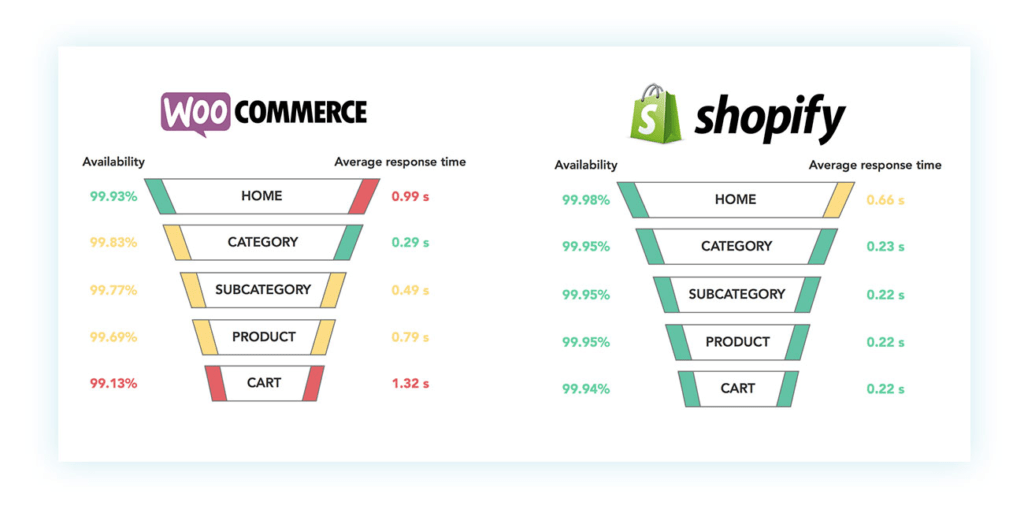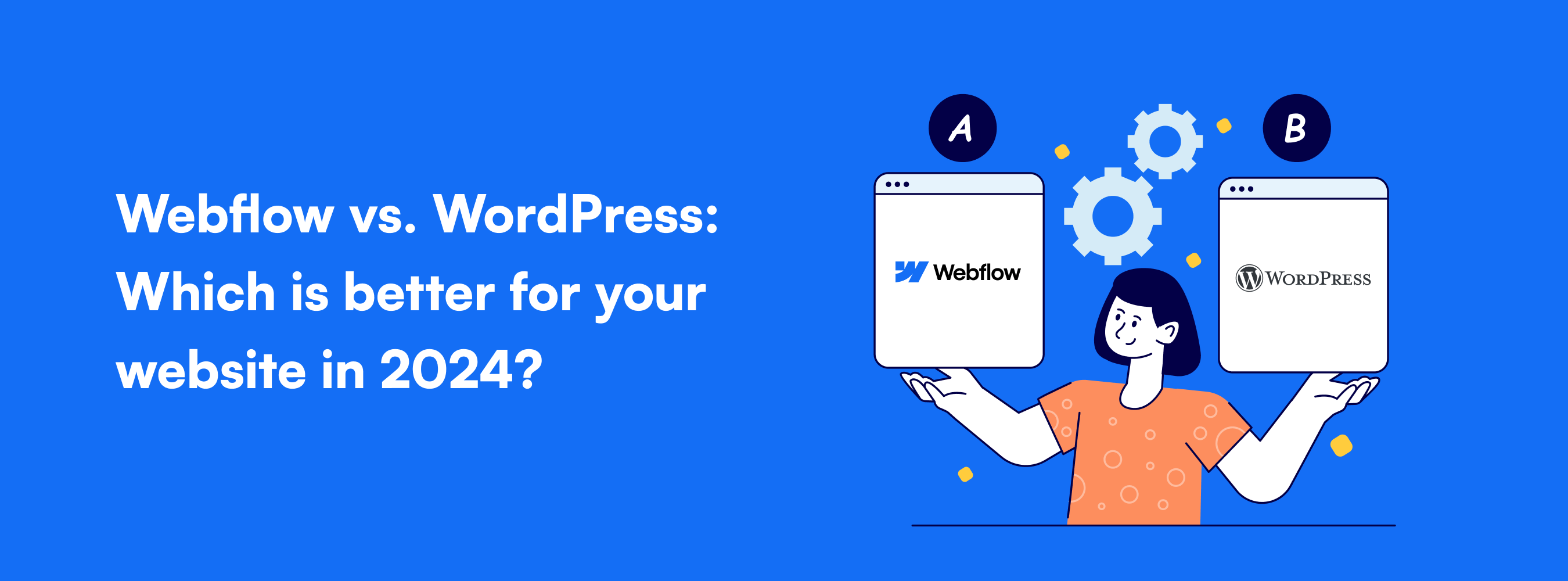Choosing between WooCommerce and Shopify for starting your online store can be tricky. These platforms help regular people open professional shops without needing to code. Both are very popular. So which one is better for you?
WooCommerce works as a WordPress plugin. It offers more flexibility to tweak the design of your store. You can customize things just the way you want. But you’ll need some technical skills. Shopify makes launching a store super fast and easy. You just pick a template. It handles more of the tough stuff for you behind the scenes. But you have less control over the look and features.
Ultimately, Shopify is ideal if you care more about quickly getting your products in front of buyers. WooCommerce works better if creating a truly unique store matters more to you. Though different, both tools are powerful. The right option comes down to your priorities. With either Shopify or WooCommerce, you can start selling online without costly help.
What is WooCommerce?
WooCommerce is like a free tool that you can add to your WordPress website, and it helps you create an online store. What’s cool is that you don’t need to pay every month to use it. Right now, about 43% of all online stores use WooCommerce, with over 5 million websites using it.
Since WooCommerce is part of WordPress, all your product and store info is saved in your database. This means you have full control and ownership, instead of being stuck with a specific system. Managing your store works like adding plugins to WordPress. You can change and add more features using extra plugins and themes.
What Is Shopify?
Shopify is an all-in-one eCommerce platform for launching and managing an online store. Shopify handles everything from building and hosting your storefront to secure checkout and shipping logistics. Pricing starts at $29/month for basic features. Additional transaction fees also apply. Used by over 1 million businesses, Shopify makes selling easy without needing to set up separate tools.
Read More. : Webflow Vs Wix: Which Is Better For Your Website?
Unlike WooCommerce, Shopify is a fully hosted SaaS-model platform. It takes care of hosting, security, speed and uptime so you can focus solely on your store and business. Their app store has over 3,000 apps to power other features like marketing and inventory management. While pricing may be higher, Shopify removes the need to separately host, troubleshoot, and scale your infrastructure. Its ease of use makes Shopify popular for first-time e-commerce entrepreneurs.

Key Differences Between Shopify And WooCommerce
| Category | Shopify | WooCommerce |
| Cost | Monthly subscription fees starting at $29/month | Free plugin. Pay only for web hosting, themes, add-ons |
| Hosting | Fully hosted on Shopify servers | Merchants must arrange their own web hosting |
| Setup | Very quick and easy setup | Third-party payment gateways charge 1-3% fees |
| Design Flexibility | 10 free themes, 60+ premium themes | Endless free and paid theme options |
| Customization | Custom code edits not allowed on base tiers | Open-source code can be edited and customized |
| Transaction Fees | Shopify payments charge 0.5-2% fees per transaction | Shopify controls the platform, apps and code |
| Extensibility | Thousands of apps to add extra features | Extend functionality with WordPress’ wide range of plugins |
| Scalability | Shopify handles scaling | Merchants responsible for scaling web hosting |
| Control | Shopify controls the platform, apps, and code | Self-managed, full control over core files |
| Support | 24/7 customer support | Community forums provide support |

Here are 4 major key differences between WoCommerce and Shopify
Customization and Control
One major difference is the level of control and customization available. With Shopify, you are limited to using their templates and themes with little ability to customize or edit code or site files. Shopify controls the platform and apps. This makes it very easy to set up out-of-the-box but restricts advanced customizations.
WooCommerce offers much more design flexibility and customizability as an open-source, self-hosted option. You have access to edit core code and files which allows for deep-level personalization. Thousands of plugins allow extending site features. For those who want to build a highly customized store, WooCommerce offers full control compared to Shopify.
Cost Considerations
Shopify works on a monthly SaaS subscription model ranging from $29 to $299 based on features. Transaction fees of 0.5-2% also apply. There are no upfront setup costs but recurring fees can add up over time. It is a convenient fully-managed option.
WooCommerce itself is free as a plugin. You only pay for web hosting, themes, and extensions as needed. No monthly fees result in lower long-term costs, though require a higher time investment. If you run into issues, you need to manage it yourself or pay for help. Overall cost savings depend on your level of customization needs.
The pricing model plays a key role in whether Shopify or WooCommerce works better from a budget perspective.
Ease of Use
Shopify is the easier platform for quickly setting up an ecommerce store, especially for non-technical users. Their simplified dashboard and process to add products, customize themes, etc. make launching a shop user-friendly. It is less flexible but very simple to operate for first-timers.
WooCommerce has a steeper learning curve as it requires installing WordPress, managing plugins, third-party integrations, and customizations. For those without WordPress experience, this can slow time to launch and require a development resource. But it enables the building more complex stores.
Scalability Support
Shopify provides automatic scaling of hosting infrastructure and capacity to handle traffic spikes. You don’t have to worry about slow load times or your store crashing from too many visitors. It handles optimization for speed, uptime and security as part of the platform.
With WooCommerce, you need to plan your own hosting scaling strategy and server capacity management. WordPress hosting has more variability in the quality of service. As your products and visitor traffic grow drastically, your hosting needs to keep pace so performance doesn’t suffer. This makes scalability challenging at higher volumes.
The hosting and infrastructure factor makes Shopify easier for large catalogs and traffic while WooCommerce puts the onus on site owners to scale their stores. Both have their plus points. Identifying your strengths as a business owner can determine which way to go.
WooCommerce Or Shopify Which Ecommerce Platform Is Best For Users?
WooCommerce’s open-source CMS foundation makes it a customizable fit for tech-savvy online merchants on tight budgets, including:
- Niche e-commerce stores selling made-to-order and unique handcrafted products
- Multi-channel marketplaces benefitting from API integrations and web design flexibility
- Developers seeking fine-grained control over site experience to realize complex visions
Shopify’s all-in-one simplicity for launching online stores makes it ideal for non-technical entrepreneurs focused on rapidly scaling up sales, including:
- Quickly growing startups needing to scale up order volume and product catalogs
- Large multi-channel brands that value built-in scalability and flashy themes
- Public figures and influencers wanting social commerce integrations
By expanding on the types of merchants suited for each platform, this section now includes more keywords and details that appeal to searchers evaluating e-commerce solutions for their business needs and capabilities. The comparisons draw clearer contrasts between WooCommerce and Shopify for different users.
Conclusion
When it comes to choosing the best e-commerce platform for your online store, WooCommerce and Shopify both offer powerful solutions to help entrepreneurs set up shop quickly. They simplify the process so you can focus on your products and customers, rather than technology.
Ultimately, the decision depends largely on a combination of your budget, comfort with handling the tech, desire for creative control, catalog size, and ability to scale along with growth in sales.
Shopify removes the typical headaches of launching online stores related to security, maintenance, design, etc. The pay-as-you-go pricing works well for most small businesses to test ideas before committing. However, the monthly and transaction fees add up over the years for established merchants.
For advanced customization needs, huge product catalogs, and control over design and scalability at higher order volumes, WooCommerce checks more boxes as an open-source and self-hosted platform. And eliminates recurring fees in the process even if technical skill is required. Integrations further bridge feature gaps.
As your business model and requirements evolve, it’s possible to even transition between the two e-commerce platforms. Starting on Shopify to launch fast while planning a migration to a customized WooCommerce setup combines the best of both worlds. Mix, match, and even migrate approaches depending on what stage of growth your e-commerce business is at!






 United States
United States United Kingdom
United Kingdom India
India Canada
Canada Singapore
Singapore



































